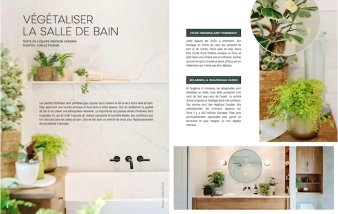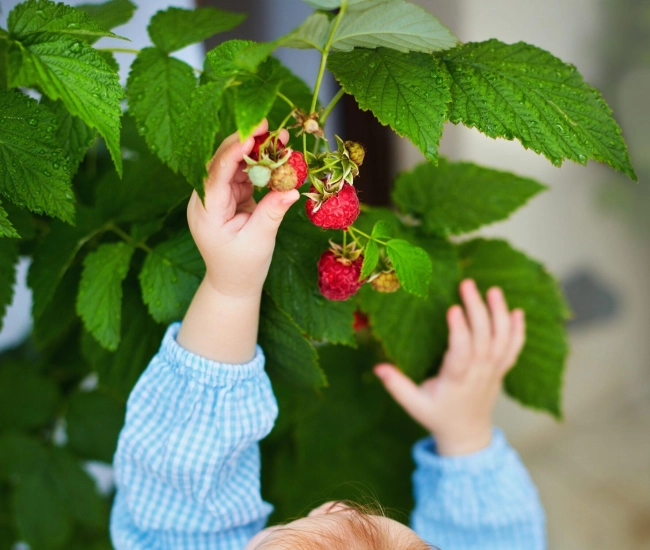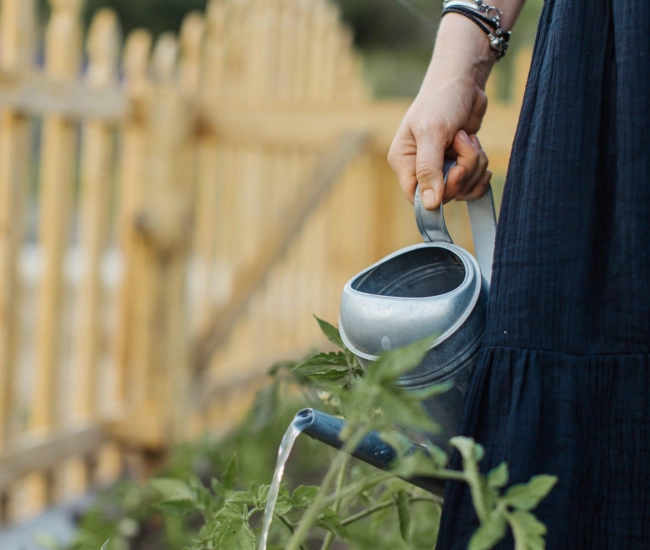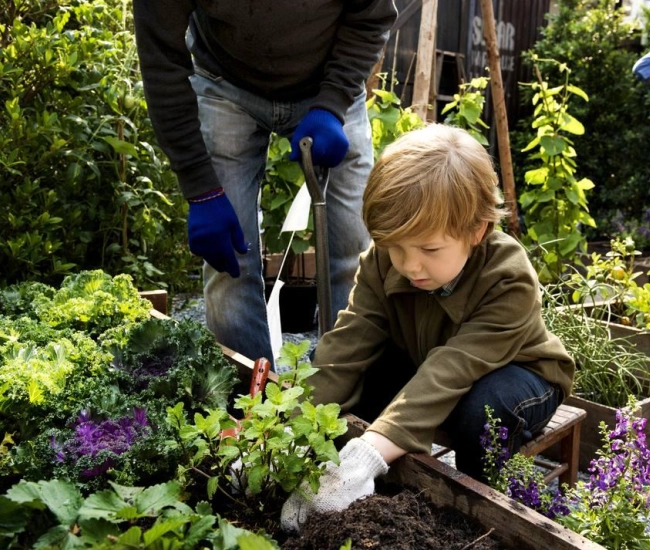
Text by Hélène Baril – Horticulturist, speaker & author
—
Summer is the period of active growth for vegetables, herbs, and small fruits, and they need a lot of water to maintain their health until maturity. But what to do if the heat wave persists and the scorching heat lasts for several days?
Regularly check the soil moisture
Vegetable plants prefer slightly moist and not waterlogged soils. There is no need to water your entire garden space every day since many plants prefer slight dryness to excess water, even during periods of high heat. Always check the moisture level in the soil before watering deeply. To do this, use a plant hygrometer or simply your index finger. If the soil is moist, space out your watering. If necessary, manually supplement the water needs of thirstier plants by watering their base and not their foliage.
How to retain soil moisture during hot weather
Just like us, vegetable plants suffer from the heat. It is normal for larger plants to droop when the sun and heat become more intense. This is not necessarily because they lack water; they are simply very hot. To help them maintain their turgidity, mulching the soil is a good solution because bare soil heats up very quickly. Spreading natural mulch around the plants (without touching their base) keeps the soil moist and cool and protects the roots from heat and dryness. Before watering or rain, hoe the soil surface to allow water to penetrate deeply into the soil. To prevent plant dehydration throughout the day, it is best to water the garden (in open ground or in containers) early in the morning. Always water deeply (for a long time but infrequently) to encourage deep rooting of vegetable plants, which will allow them to resist drought more easily.
Weeding and fertilization
During periods of drought or high heat, it is recommended to stop all fertilization since fertilizers stimulate plant growth, and a growing plant requires more frequent water inputs. Don't worry, a few days without fertilizer will not reduce your garden's production.
Weeds do not mix well with vegetable plants, so there is no need to create a war between unwanted plants and garden vegetables. It is better to weed regularly to preserve water for cultivated plants.
Tools to the rescue…
There are very useful drip irrigation systems for watering gardens in containers or in open ground. Simply place the irrigation nozzles at the base of the plants and adjust their flow to better distribute water in the soil, limit water loss through evaporation, and keep the foliage dry.
Soaker hoses placed on the ground around the thirstiest vegetable plants are very effective. Connected to a programmable timer according to the weather and the cultivated plants, they distribute water directly to the base of the plants. For optimal performance, and to limit water loss through evaporation, cover the irrigation hoses with mulch.
You are going on vacation…
Read our complete advice on the subject
Monitor the watering of your garden plants and above all, respect the needs of the plants so that they are perfectly happy and produce to their full potential.
Tips and advice



